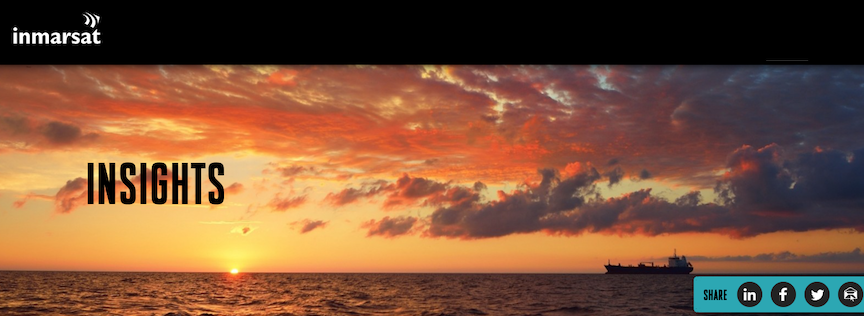
With one-quarter of the world’s goods passing through the Singapore Strait each year, the report identifies the island city-state as ‘The Startup magnet’A first, and very ambitious report, sponsored by Inmarsat reveals the most comprehensive overview, ever, of Singapore’s vibrant maritime start-up sector.
| The Trade 2.0 Singapore Maritime Start-up and Innovation Ecosystem Report, published through the Inmarsat Research Programme, is the second country-specific study of start-ups and their impact on maritime digitalization. It builds on a global Trade 2.0 report launched in 2019 and the Japan Trade 2.0 report published in April 2020. Once more, the report is authored by Leonardo Zangrando, Founder of Startup Wharf, and Nick Chubb, Managing Director of maritime innovation consultancy Thetius. With one-quarter of the world’s goods passing through the Singapore Strait each year, the report identifies the island city-state as ‘The Startup magnet’. Singapore’s maritime IT market alone is forecast to generate US$2.4billion in 2021 and reach US$4.8billion by 2030. Two Singaporean accelerators are driving innovation for the shipping and offshore sectors. Pier 71, founded by the Maritime and Port Authority and NUS Enterprise, has matched start-ups with backers including BP, Wilhelmsen, Pacific International Lines, Ocean Network Express, Cargotec, Wärtsilä, Vopak, and Bernhard Schulte Shipmanagement. Meanwhile, the Techstars/Eastern Pacific Shipping ‘MaritimeTech Accelerator’ has provided a home to 18 emerging technology companies. “Singapore is a maritime technology ‘David’ in a world of ‘Goliaths’ with a unique, agile and rapidly expanding innovation ecosystem for start-ups,” says Ronald Spithout, President, Inmarsat Maritime. The Trade 2.0 Singapore Maritime Startup and Innovation Ecosystem Report captures some rising start-up stars, with several showing how the approach can bring or adapt solutions quickly to markets. Greywing was originally a platform aimed at making it easier for ship operators to access security resources by matching suppliers with clients, for example. The COVID-19 crewing crisis led to its repositioning as a tool to get crews safely home by analyzing data and controls from 100,000 ports, including immigration restrictions, visas and flight availability. COVID-19 also encouraged Aeras Medical to expand its digital platform to include remote video ‘Fit-to-Travel’ services, allowing doctors to certify crew without physically boarding the vessel. “Enabled by the Fleet Data IoT platform, Inmarsat’s Certified Application Provider (CAP) programme has grown dramatically in Singapore,” adds Spithout. “We have five Singapore companies already in the programme, four of which are in scaleup mode. They cover vessel performance, video monitoring, fuel optimisation, crew wellbeing and more, and are among the maritime digitalisation pioneers. We have also been working with start-up accelerators such as Rainmaking which signifies the importance of the country.” To download the report, here |
